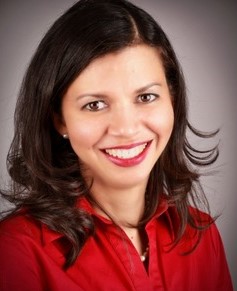Over 100,000 Americans are diagnosed with sickle cell anemia, an inherited blood disorder that affects the shape of red blood cells, which carry oxygen to all parts of the body. In sickle cell anemia, some red blood cells are half-shaped, becoming rigid and sticky, which can slow or block blood flow and cause the patient to suffer.
Overwhelmingly, these patients are of African descent. As a part of Sickle Cell Awareness Month, Dr. Kendra Outler, MD from My Uzima Health and Wellness sat down with Dr. Courtney Fitzhugh, MD, a Lasker Clinical Research Scholar in the Laboratory of Early Sickle Mortality Prevention at the National Heart, Lung, and Blood Institute (NHLBI to discuss her life’s work to finding a cure, particularly through exploring new avenues of hematopoietic stem cell (HSC) transplantation.
 Dr Courtney FitzhughDr. Fitzburgh first became interested in sickle cell disease when she was in college. According to her, “Just reading about sickle cell, I became very interested in it. I like that every patient is different. So you might have one patient that has pain, one patient may have had a stroke, one patient might have heart and lung disease. Everybody’s different. It’s just very interesting.” What also makes sickle cell particularly interested is its predominance and impact in minorities, particularly Black people. “So in the United States, most people with sickle cell disease are African American. And it’s an area I wanted to be able to help my people with. And so that also attracted me to it. “
Dr Courtney FitzhughDr. Fitzburgh first became interested in sickle cell disease when she was in college. According to her, “Just reading about sickle cell, I became very interested in it. I like that every patient is different. So you might have one patient that has pain, one patient may have had a stroke, one patient might have heart and lung disease. Everybody’s different. It’s just very interesting.” What also makes sickle cell particularly interested is its predominance and impact in minorities, particularly Black people. “So in the United States, most people with sickle cell disease are African American. And it’s an area I wanted to be able to help my people with. And so that also attracted me to it. “
There are different ways professionals can approach impacting patient lives—through research, treatment, etc. Dr. Fitzburgh takes a translational approach to solving sickle cell. “My lab is called a translational lab. A big part of it—especially part that I do—is the clinical part.” What does clinical translational research look like? According to Dr. Fitzburgh, “We see areas that we think that care for patients can be better, so we write a protocol. We decide the eligibility criteria; how sick does the patient have to be, what you don’t want them to be. You outline every single step of how you’re going to treat the patient, how you’re going to follow them long-term. That’s the clinical protocol. So we enroll patients in our study and then follow them—that’s the clinical part of what I do. But I also have a lab. And so I hired a staff scientist who actually has a lot more experience in the lab than I do. In order to make things better for patients, you want to try to work things out in the lab to see how we can make these better.”
While many investigators focus on curing sickle cell, many forget about the aftermath. “We’re curing the patients—or we don’t say cure, necessarily, we say we reverse sickle cell disease. What does that impact have on the patient’s long-term? We know that there are certain risk factors for early mortality in patients with sickle cell disease, and heart disease and lung disease are two of them, as well as kidney disease. So we really want to see what impact these curatives have on the heart, the lungs, and the kidneys. “
To learn more about the challenges of sickle cell anemia and Dr. Fitzburgh’s research, listen to the full interview with Dr. Kendra Outler, MD from My Uzima Health and Wellness.